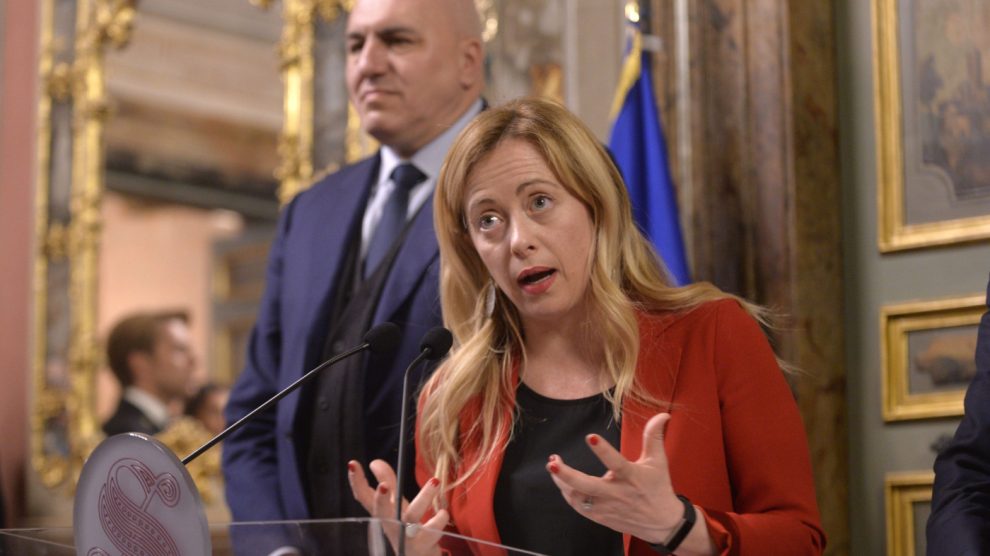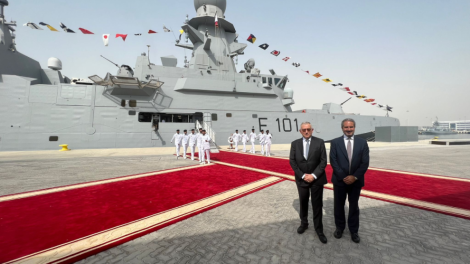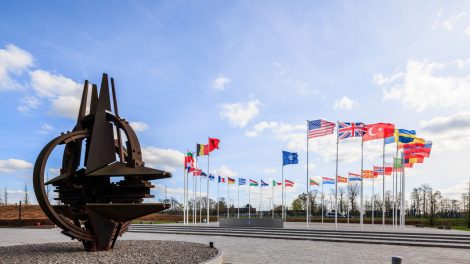Meloni sets out Italy’s position on Ukraine. “We are proud of the great solidarity shown by Italy to the Ukrainian people during this dramatic period.” Thus spoke the Italian Prime Minister in her communications to the Lower House ahead of the European Council, detailing the country’s position as she will relay it there.
- “The room for manoeuvre for the cease-fire appears very limited today. In any case, Italy will support the proposed efforts,” she added, noting that the EU “must assume a more incisive role on this front for the benefit of the entire continent.”
- Italy, “a founding state of both the Atlantic Alliance and Europe, will play its part: Europe must be united against Russian aggression. We have not changed our minds; our convictions do not change whether we are in government or opposition,” she said.
- On Monday, Business Minister Urso also discussed peace and recovery with Andriy Yermak – Ukrainian President Zelensky’s Chief of Staff. He reiterated Italy’s support and promised to boost it through the countries’ economic partnership.
Parliament supports the government. The Senate approved (143 in favour, 29 against) the majority’s resolution on extending military support to Ukraine. The chamber also approved two resolutions (144 in favour, 28 against) along the same lines, presented by the Democratic Party and the Azione/Italia Viva alliance, both at the opposition.
Weapons packages. Pursuing the goal of assisting Ukraine entails “military aid as well,” noted the PM, “because […] beyond easy propaganda, there are two possible conditions for the cessation of hostilities:” surrender (in Ukraine’s case, resulting in an accomplished invasion) or “a substantial balance, a stalemate, between the forces on the ground,” which would force “those who have invaded to desist and come to milder advice.”
- The previous government kept the contents of military aid secret. The classified nature of the relevant decrees required their passage through Parliament’s Intel Committee. While remarking the current government has implemented its predecessor’s commitments, Defence Minister Guido Crosetto told senators that should it approve a sixth military aid package, based on manifested needs, it would follow the same classified procedure.
What could be in it? Right at the beginning of 2023, that sixth package could arrive on the government’s table: as ANSA reports, due to the arrival of winter and Russia’s intensified bombing of strategic targets, Kyiv might request air defense missile systems to protect the country’s critical infrastructure.
- Hypotheses in the field include Aspide, anti-drone systems, and – provided the availability – Samp/T system, far more advanced yet rarer and therefore difficult to obtain.
NATO spending. Other nations “have put a lot more into the Transatlantic alliance than we have: more economic resources, more military contribution, more investment,” and thus gained more clout, remarked the defence minister. “And that has always worked out well for [Italy], because it has allowed us to have very low-cost security and enjoy an umbrella of protection funded by others.”
- “Then the Alliance began to ask for a greater commitment,” he added. “That was how we began a path pursued by every government, bar none, that will lead us to fulfil a commitment we signed years ago:” aligning Defence spending to the 2% of GDP target.
War, peace and sanctions. Sanctions on Russia are “painful for our productive fabric” but have an effect on Russia, said Mr Crosetto. The PM, for her part, remarked that “Moscow’s costs must be higher than those borne by Europe – which is why we will watch the effects of [sanctions], especially on energy,” as “defending the national interest also means not passing on to the Italians the costs of the just sanctions on Russia.”
- “In the Italian Parliament, we are all in favour of peace, and we repudiate war, no one excluded,” said Mr Crosetto in response to accusations of warmongering. “Those who have seen war up close,” i.e. Armed Forces personnel, “hate and despise it more than anyone else,” he stressed, recalling those killed and wounded in military and peacekeeping operations around the world.
- The same ideals supported the NATO intervention in the former Yugoslavia in the 1990s and the continued Italian commitment to the Balkan region, a topical issue even these days. “We do it with competence, seriousness, credibility and determination,” he added, noting the Defence Ministry “was created to preserve peace, always and everywhere.”
Beyond the war: rethinking the global order. “I am convinced [that] when the conflict is over, the international community will have to completely rethink the architecture of security and international relations,” said Minister Crosetto. “The United Nations as we modelled it after World War II has now been held hostage for a decade by the system of cross-vetoes that limit its main task: that of preventing the many conflicts in the world from degenerating into war.”





